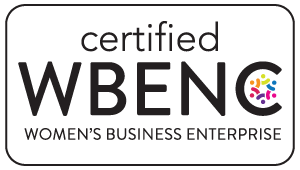Navigating Tax Season as a 1099 Locum Tenens Provider
Tax season starts in late January and runs through Tax Day on April 15, giving you months to prepare. Whether you’re a 1099 locum tenens independent contractor or a W-2 nurse, it is best not to wait until the last minute to file your tax return.
Types of taxes for traveling healthcare providers
Traveling nurses and allied professionals work as W-2 employees, which means the healthcare facility or recruitment firm will deduct and pay income taxes, social security and Medicare on their behalf. The staffing agency deducts federal and state taxes each pay period and sends you a W-2 tax form annually that you use to file your return.
Locum tenens physicians and advanced practice traveling providers are considered self-employed 1099 independent contractors. If you work as a 1099 contractor, taxes are not taken out on your income, so you must pay your own federal and state taxes and federal self-employment tax.
Your adjusted gross income (AGI) will determine your tax bracket and how much you have to pay.
Locum tenens tax strategies
TinkBird Healthcare Staffing suggests these strategies to help self-employed individuals prepare for this tax season.
Keep good records of your income and expenses
To file your 1099 tax return, you must keep good records of your income and business expenses from your assignments. This includes employment contracts, travel mileage records, housing payments, credit card statements and receipts.
In late January, your employer(s) will send you a form 1099 stating your earnings from the previous year. You will reconcile that with your expenses and deductions to determine your taxable income. Some people use software like QuickBooks to scan their receipts and enter information so everything is in one place and can be accessed easily.
According to CBS News, “1 in 500 tax returns are audited each year.” If you are concerned about being audited for your traveling work, diligent record-keeping can protect you in case of an IRS audit.
Maximize your tax deductions
Self-employed locum tenens and advanced practitioners can take tax deductions for many business-related expenses, including:
- Medical licensing, certification and board exam fees
- Continuing medical education and textbook costs
- Home office expenses
- Computer, cell phone and other home office equipment used for business
- Scrubs, stethoscopes and other equipment purchased specifically for the job
- Non-reimbursable travel expenses (lodging, travel between your home and temporary work site, etc.)
- Business travel meals related to your locum tenens work
- Malpractice insurance and health insurance (if you pay for your own premiums)
- Professional services costs (accountant, attorney, etc.)
Tax laws are constantly changing, so check with your tax advisor to confirm the deductions are allowed.
Prepare to pay state income taxes
If you work as an independent contractor, you must file non-resident tax returns for every state you worked in the prior year. Each state has different tax rates, so the amounts you pay will vary. You must also pay taxes in your home state as a resident.
Nine states do not require income taxes: Alaska, Florida, Nevada, New Hampshire, South Dakota, Tennessee, Texas, Washington and Wyoming. Some traveling medical professionals choose to work in these states, so they are not responsible for paying state income taxes.
Pay your quarterly estimated taxes
If you plan to work as a 1099 locum tenens or advanced practitioner this year, the IRS requires you to pay estimated taxes quarterly in addition to filing an annual federal income tax return. Paying quarterly taxes helps you avoid a hefty tax bill and penalty in April.
A tax preparer can help you determine your estimated taxes and show you how to make payments.
Engage a good tax professional
Doing your taxes as a self-employed medical provider can be daunting. To make it less stressful, hire a professional tax preparer to help you with your self-employed locum tenens taxes.
A professional will ensure your returns are completed correctly and that you receive all your qualifying write-offs, tax deductions and tax refunds. Your tax advisor can also provide insights about setting up a self-employment retirement plan.
Look for a tax professional who has experience with traveling medical providers and complex returns requiring filing in multiple states.
Want to be a traveling medical professional?
As a comprehensive healthcare recruiting and job placement firm, Tinkbird Healthcare Staffing can help you find the perfect job as a traveling doctor or physician assistant. We also recruit for permanent placement positions. Contact us today to start the exciting next phase of your medical career!
IMPORTANT: This article is not intended to be tax advice. Work with a tax professional if you are unsure about filing taxes as a 1099 medical provider. Federal and state requirements are subject to change, and the information presented may not apply to your situation.









